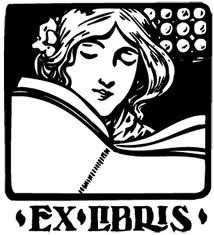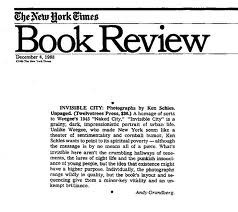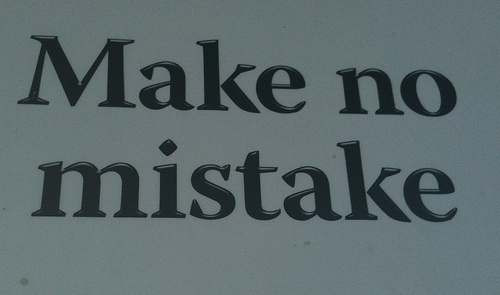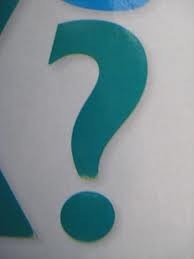P.A. Wilson's Blog, page 24
September 13, 2012
Picking your fights – internet brouhahas
There have been a few big fights lately on the internet and I wonder if it makes sense to ever throw your hat into the fire – yeah I know, mixed metaphor.
LendInk, Paid Reviews, Sock Puppet Reviews.
Here’s some information about each of the three controversies.
LendInk, facilitated the legal lending of ebooks and some authors decided it was a piracy site and took it down. Check out Claire’s post over at Raynfall.
Paid reviews, some authors have been paying for reviews and that felt like cheating to all kinds of people.
Sock Puppet reviews, some authors were creating identities on sites like Amazon and not only leaving 5 star reviews for their own books, they also left 1 star reviews for their “competition”.
For information on both of these review issues, check out Konrath’s post on it.
Why people respond and what happens
I think there are two main reasons people respond; they want to clarify or they want to defend.
The clarifiers will jump in early as the supposition builds and sides start to form based on guesses. They’ll provide some facts or perspective. They’ll try to cool the rhetoric. What happens is they create all new sides to the fight. It seems that attack is the choice of the anonymous internet personas. If someone clarifies, someone will jump in and attack them for putting the facts on the table. Then we get the defenders involved.
The defenders sometimes come it at the beginning to defend the actions or intentions of the people initiation the storm. They will come in again as the factions shatter. Defending one side and creating more shards.
Should you dip, dive or stumble into the fire?
Why not? I think it can be a great place to give your opinion on anything. I hope people think before they start throwing around accusations and threats, but if you have something to say, why not say it.
I’ve put my fair share of comments on the various posts about each of these issues. I try not to sling mud; I try to understand the problem before I jump in, and I’m willing to change my opinion if I see cause.
For LendInk, I really wished that the original authors had done their homework before attacking a great site. I hate the fact that some of them feel that they are still the saviors of the universe despite the facts, but it’s easier to take that attitude on the internet than it is in the real world. I can click away from the discussion, it’s hard to walk away.
For the paid reviews, I’ve come to believe that it’s just marketing. It feels a little icky, but there’s a lot of marketing that feels that way.
For the sock puppet, well, as Joe Konrath says, some people are just dickheads.
Do you like to jump in and stir the pot? Or, are you a lurker? Or someone who likes to try to spread reason?
September 11, 2012
Books that I love – The Daughter of Time by Josephine Tey
This is a book that surprised me. It’s a short novel and it’s about whether Richard the Third deserved to be condemned for his actions. What surprised me was that I have no interest in any of her other books.

If I like an author, I don’t need to love all their work, but it’s unusual for me to only read one book in an author’s whole work.
Some reasons
Josephine Tey writes crime novels and according to her bio on Amazon, She began to write full-time after the successful publication of her first novel, The Man in the Queue (1929), which introduced Inspector Grant of Scotland Yard. In 1937 she returned to crime writing with A Shilling for Candles, but it wasn’t until after the Second World War that the majority of her crime novels were published.
The problem for me is that her other work is very much of her time in the early part of her career. It’s not that I don’t like books from that period – love P.G. Wodehouse for instance – but it’s that the work is dated.
What’s different?
It was written in 1951, so the style is more modern – yeah, I know it’s still really old – and seems to have a timeless pace. The structure is more familiar, perhaps. It’s not an action thriller and the mystery is hundreds of years old. Somehow she makes it important – vital- to know whether the history is likely to be true. Evidence piles up, but most of it is from research. Our protagonist is bedridden and sends an assistant off to answer questions.
The hook – caution slight spoilers
The fact that history is written by the victors is an eternal truth. By exploring the questions behind Richard III’s horrible history, Josephine Tey is speaking to the latest political scandal. When we read that Richard was probably the real heir to the throne, the accusations that he executed the princes rings hollow. When we realize his main accuser had personal reasons to question Richard’s actions – do we kid ourselves that we would be smart enough not to fall for the such a clear underhanded tactic?
For me the story is timeless because human behavior is unchanging. History continues to be written by the victor – and the side that thinks it’s victorious.
So, do you have authors that have only one book you love of their entire work? Or are there books that surprised you at their timelessness?
September 9, 2012
Motives in murder mysteries
 I found this blog post on motives for murder. There’s not that many real motives, and yet authors find such wonderful ways of twisting this small list into intriguing and interesting stories.
I found this blog post on motives for murder. There’s not that many real motives, and yet authors find such wonderful ways of twisting this small list into intriguing and interesting stories.
Let’s look at each of the top 5 and find a way to twist it. I won’t cite any books, because that would be total spoiler.
#5 – Alcohol and drugs
My first though on this is two junkies killing each other over some crack in an alley.
This motive could easily be twisted to include experimental drugs. Your murderer is the parent of a child who desperately needs an experimental drug to save his life. The doctor in charge of the test won’t admit the child to the test, but his partner promises to do it if only the parent takes action.
#4 – Revenge
This is always juicy. The child murdering everyone involved in the death of a parent.
This twists nicely into revenge by proxy. Someone is driven to take revenge, but uses another person to do it. They convince this other person that their victim did a terrible wrong and must be punished.
#3 – Money
This covers all kinds of theft or swindle. The ‘you steal all my money, I steal your life’ plot.
What if we twist it into a group murder plot. An investment club lost all the money due to the economic crash. They turn the goals of the club into killing for hire.
#2 – No apparent reason
Often the reason is not apparent because the clues are too vague – or perhaps it’s really a random act of violence.
This hardly needs twisting. When writing a mystery, it’s often about hiding the motive so the ‘who done it’ is revealed at the right moment. If the killer is removed from the victim, or a great liar, or a serial killer, the motive may be obscure.
#1 – Domestic argument
Statistically you are more likely to be killed by someone you know and care about than by a stranger.
Family dynamics are ripe for twists of this motive. What if mom is killed by the child she gave up for adoption thirty years ago that no one knew about? What if the kids were always arguing violently and one is killed? Suspicion falls on the surviving child, but the real killer is the bully at school.
There’s a saying that there are no new stories. I don’t believe that’s true because different authors will twist the basic plots in their own special way creating new and interesting stories.
Is there a book you love that twists a story in an unexpected way?
September 7, 2012
Setting prioities means not doing something
Today I planned to get caught up on the draft of the 3rd Quinn Larson book. Then I looked at my calendar and realized I would be starting on it around 4pm – again. So, I’m cutting out

a few to-dos. Cleaning can wait and so can shopping. This blog post is going to be fast and short.
What do you do when what you need to do spills over the time you have?
September 5, 2012
Do your reading preferences change as you age?
 I’m not talking about growing out of See Spot Run to murder mysteries. I’m talking about a change from a slower paced story to a quick read. Is it because of time or taste?
I’m not talking about growing out of See Spot Run to murder mysteries. I’m talking about a change from a slower paced story to a quick read. Is it because of time or taste?
Maybe it’s just me, but I just realized that the last 3 books I stopped reading were books I would have loved even 5 years ago. I struggled through about 15%-20% of the book before I just removed from device – Kindlespeak for I give up.
Then and now
Then being the time when I devoured books that spent pages setting the world, or explored odd ideas of the future of humanity. Books that didn’t rush to action scenes. Now being, well, now. When I love to read books that keep me awake with the speed of the story. That build quickly to the crisis that needs to be solved.
Then, I hadn’t written 8 books and drafted three more. Then, I didn’t spend my time writing. Then, I had little idea what it took to tell a good story. I just liked to go away into another world or another reality – and I had time.
Now, I spend most of my spare time writing, or thinking about the next book. I read on my Kindle because it’s available as long as it’s in my purse. So, I get to read waiting for an appointment, or on transit without carrying four or five books with me. Now, with my Kindle I can switch to a new book if I am getting bored.
The books I gave up on
I don’t leave reviews for books unless I can give 3 stars and a comment. When I give up, I just mark the book as read on Goodreads and Shelfari. I especially don’t leave bad reviews just because it wasn’t my kind of book. Of the last three I stopped reading, there was nothing that would have stopped me five years ago. Here’s what happened.
Tears of the Sun by S.M. Stirling – I’ve read all the others in the series and enjoyed them, although I did think the first one, Dies the Fire, was the best (In an odd turn, it’s much like the new Revolution series. The world changes when the power stops working). This latest one was promising to resolve a big question, maybe the big question of the story. The writing was as good as the past books, a lot of world building or reminding and the enemy is mysterious and deadly. I just couldn’t continue reading because I felt like I was familiar enough with the world that the story just needed to be told.
The Diamond Age, Neal Stephenson – I don’t know why this one didn’t work for me. I loved Snowcrash and it was just as weird, but this one felt chopped up to me. Perhaps because I couldn’t put together more than 20 min in a row to read it. This is the kind of book that requires your attention. Again, well written and it should have engaged me.
The Player of Games, Iain M Banks – Another one that surprised me. I loved House of Suns, but I just couldn’t keep going. There was nothing wrong with the book, it just needed me to read it for bigger chunks of time.
The question for this post is, has this happened to you? Are there books you would have devoured a few years ago that you don’t like any longer?
September 3, 2012
Paid reviews, the latest hot topic in publishing
The hot topic in the last few days had been all about paid reviews. It hasn’t reached the level of witch hunt yet, let’s hope it doesn’t ever get there. The buzz right now is all over the idea that paid reviews are set up to scam the reader. I’ll take another tack. From a self publishing perspective it’s no better than any other vanity publishing scam.

A quick definition of the problem
The furor is about the idea that people buy books based on reviews and that publishing houses and authors are paying for good reviews. These reviews are being done by people who haven’t read the book and that’s the problem.
Traditional publishing has been doing this for a long time, and I think they see it as a marketing cost.
Self publishers have started doing it – I’m not sure it’s recent – and that seems to be the problem.
I’ve never paid for reviews with anything other than a free copy of the book. There are two reasons. I want reviews from people who have read the book – I read these reviews and consider them valuable feedback no matter how many stars I get. And because I see paid reviews as simply another scam perpetrated on naive authors.
Why reviews matter
For self published authors the main problem is getting noticed. Reviews get you noticed. The more reviews the better and any number of stars is great. It’s a marketing issue. Get reviews Get more than just 4 and 5 star reviews. Get noticed, get sales, get noticed, get more sales.
The cost of reviews
Let’s start with the unpaid reviews. I know from personal experience, it takes a long time to get that review up there. I spend hours finding review sites that accept indie or self published books. I have to fight the perception that indie authors will throw a tantrum if the review is bad, and that my work will be crap.
When I find a site that lets me submit, and reads my genres, I review their book reviews to see if they give balanced opinions. Then I create an email specifically for the site, making sure I follow all the guidelines. Then I wait. Sometimes I get a review, sometimes I get nothing. And I move on to the next reviewer on my list.
Paying for reviews is easy- I’m making some assumptions here because I’ve never done it. Based on a glance at some of the submission guidelines, I fill out a form, describe my book, maybe add a coupon or epub file, I pay the fee and I get the reviews. Fees range from $400 or $500 to ‘marketing packages’ of thousands.
See why it’s tempting?
Do people buy books because of reviews from people they don’t know?
I don’t know if this happens. Lots of reviews might bring a book up the list on the retailer’s shelf, virtual or otherwise, but I suspect it doesn’t make a sale. These days, you have the opportunity to preview a book online, just the way you would flip through a few pages in the bookstore. When you do that, you can tell if the writing is good and if the story engages you.
The blurb and the tags and the categorization should work to classify the books appropriately. Reviews and recommendations from friends and trusted sites are more likely to influence a sale according to the research online.
What do you think? Do you buy books based on reviews? Do you think it’s unethical to buy reviews?
September 1, 2012
MIxing genres. Romance/thriller?
I’m old enough to remember when a Romance was a Romance. Today, it seems we need more than that. Other genres mix, but Romance seems to be the genre that likes it most. I’ve written about this before, but I think the subject deserves a little deeper dive.
Is it because a love story isn’t enough? Or is it because the love story is enhanced by other plot

conventions? Let’s look at the romance/thriller combination.
What I remember
I read my fair share of romances in my teens – I’m talking Harlequin mostly. I remember that the romance was the clear plot. It was all about how the two people came together. There was a story that ran under the romance, but it was just there to support it. The man was always an alpha, the woman was independent as long as she was still needy enough to focus on romance.
What I see now
The plots and the characters are more equal. Romance is still primary, but the thriller story has to be a real story. The Romance plot is tied very closely to solving the problem and if you analyze it, you’ll see how the key plot points tie together. I try not to analyze books I’m reading, but as an author, I’m always looking at how to improve my craft.
The couple usually start out on apparent opposing sides of the problem. As the stakes increase, they are forced together. They can only save the world by working together, the romance has to rely on them working together as well.
At the end, there is often a romantic complication. The couple may have agreed to a temporary alliance to save the world. Now that they’ve done it. the alliance needs to end, but now they love each other.
One more thing, higher stakes means hotter emotions. There is more sex sooner, and it seems to make more sense to me. High stakes, high passions, high risk.
Good or Bad?
I like it. I read much more romance now that I can get a mix of genre. I find it more entertaining to worry about more than the love conflict, because I think life is about more than that.
Recommendations:
Samantha Graves – she also writes Scifi/Romance and Paranormal/Romance under the name of C.J. Barry
J.D. Robb – As I’ve mentioned before this is Nora Roberts writing futuristic Thriller/Romance.
Jennifer Crusie along with Bob Mayer – these two write some great romantic thrillers.
Do you have a favorite you would like to recommend? Post it in the comments here.
Have a great long weekend!
August 30, 2012
Mystery story tropes and how they work
 Every story genre has some conventions – or tropes – that must be there to satisfy the reader. A romance must have a happy ending – or it’s not a romance. Mysteries must have clues and distractions and red herrings.
Every story genre has some conventions – or tropes – that must be there to satisfy the reader. A romance must have a happy ending – or it’s not a romance. Mysteries must have clues and distractions and red herrings.
There are some mystery tropes that get over used, and some that are used in such creative ways that you hardly recognize them. The guest star on any TV crime drama is always the perp – a trope. The red shirt always dies first on Star Trek – a trope.
Tropes are usually not supposed to jump out and hit you on the head, but sometimes they do.
Here are three tropes for mystery writing and some examples of how they are used.
Chekhov’s gun
Not the Star Trek Chekhov – the author. It’s a fancy way of saying foreshadowing. A gun on the mantlepiece is just another item in the scene, but it becomes important in the end.
This is frequent in television crime series. You’ll see the evidence laid out and something simple is there that everyone ignores. In the end it’s the murder weapon. The Closer series (sad it’s gone, but loving Major Crimes) does a great job of this. Brenda will interrogate a suspect and get stuck on that one little thing that pushes them over the edge. Then later in conversations with Fritz, or momma, or daddy and they’ll say something that triggers her memory.
The red herring
One of my favorites. This is the clue that leads the investigator down the wrong path. And it wastes time and frustrates everyone. Sometimes the reader is well aware that the detective is after a red herring, but is entertained by the search and revelation of the trick.
There are so many great examples of this that I find it hard to pick one. Agatha Christie was a master of this. She’d plant clues, or people, throughout and surprise everyone at the end. In my opinion, she would often unfairly surprise the reader too. Her red herrings were not often set up well – there should always be at least a suggestion that the red herring is just that.
The magical database
I mentioned this in my post about mystery mistakes. This is most evident in TV and movies because the passage of time is more obvious, but it is a convention in books too. The computer scans fingerprint databases for a match (often of very few points of reference) and voila there’s a match. Or it scans hours of video recordings and finds our villain leaving the scene of the crime – and it can do that in reflections of pieces of his/her face.
It’s used in all of the CSI franchises and any other high-tech show. The cast of these shows all seem to be geniuses who know everything about their chosen field and I often wonder why they take so long to figure out the clues.
What tropes do you notice in your favorite mysteries? Are they entertaining, or do they get in the way?
August 28, 2012
Mistakes in Mystery writing, do they drive you nuts?
 I’m not going to shame any particular author, or book, but there are some things that authors get wrong in crime books that seem to drive people to the brink of murder.
I’m not going to shame any particular author, or book, but there are some things that authors get wrong in crime books that seem to drive people to the brink of murder.
I do as much research as I think is feasible (I’m not writing a thesis after all), and you can get a lot of information on by Googling that you can rely on. Government sites are great, as well as official club sites. But sometimes I think authors make assumptions. It’s not that they don’t care, it’s that they don’t realize there’s a different way something would work.
Then there are the things we all do that are “wrong”, but we have to tell a story.
Weapons – it seems the most cardinal of sins
I have to agree with the people who get upset with the author who can’t be bothered to do some basic research on weapons. This is something you can check so easily with a Google search or a visit to a gun club (for those of us who don’t live in gun happy countries), or a gun shop.
As authors we need to know that some guns can’t shoot rapidly, some guns don’t have safeties, and specific guns have specific names. On the same topic, we need to use the right term. Not everyone calls a gun a gun, often they are called weapons by the experts.
Using the wrong titles for the different roles involved in detective work
A mystery author needs to know whether a detective will show up or a constable, or an officer, or a sheriff. Will the autopsy be done by a coroner or a medical examiner? Is the morgue in the basement of the hospital or a separate facility?
It sounds so complicated, but it’s not that hard. While it doesn’t raise the furor that a poorly executed gun fight will, it can still annoy readers. If you have a sheriff in a detective novel set in British Columbia, for instance, they had better by driving prisoners around because that’s what they do here. And knowing whether you’ll be dealing with the municipal police, or the RCMP is as important as knowing the difference between the FBI and the local police department – except the RCMP might be the local police.
The things that seem like mistakes, but are license
So, you’ve probably heard about the CSI effect. This is the difference between movie/tv/book processes and real life.
In real life, DNA tests can take months. In real life, a medical examiner/coroner won’t test for every poison or drug known to humankind – nor will they guess the cause of death or time of death at the scene. In fiction, the timelines have to collapse and the extraneous details need to be stripped away. The story can take place over weeks or months, but the pacing needs to be tight.
The important thing for authors to remember here is that no matter what happens in their story, it needs to feel real.
My personal favorite
This isn’t confined to the mystery genre, but it drives me crazy when people are chatting in the story and divulge all kinds of information that would get them fired and possibly thrown in jail in real life.
What are your personal bugbears in mystery books? Is there something authors do that sets your teeth on edge?
August 26, 2012
Do you have a favorite type of mystery?
Mystery is one of those genres that comes in all kinds of flavors. They run the gamut from Raymond Chandler’s noir, to Dianne Mott Davidson’s cooking mysteries. There are 3 different styles I find myself drawn to time and again.
Cozy

This is the type of story that happens in a small town and the murderer/criminal is someone everyone knows and trusts. The detective can be an amateur, Miss Marple, Jessica Fletcher, or a policeman – Inspector Barnaby from the Midsomer Murder series.
The reader is given clues throughout to let them solve the mystery along with the detective.
My recommendation for this is The Midsomer Series by Caroline Graham. The books are set in a small group of fictional villages in England. They reinforce my belief that you never want to live in a small town. The crimes are sometimes pretty awful, but the pace is slower and the tone is caring.
Gritty
This type of mystery is done well by the British, or writers who aren’t British, but write that way. The detective is usually somewhat broken, Rebus, Inspector Banks. The crimes are ugly and may be committed by strangers, or you may know all along who committed the murder.
How the detective solves the crime and how it affects his (they are usually male) particular problems is what attracts the reader to the stories. Often the readers are fans of the detective and will read everything the author puts out. I like Peter Robinson’s Inspector Banks series.
Funny
These mysteries have amateur detectives (often women) who kind of fall into the investigation. Crimes are committed around them and they end up investigating and catching the criminal. Like a cozy, they are often set in one town and people know the killer/criminal. Often they will come with bonuses, like recipes, or handyman tips.
I like a lot of these, but my favorite is Diane Mott Davidson. Her detective, Goldy Shulz, is a caterer in a community outside Denver Colorado. She has some of the freakiest neighbors I’ve ever met in a book. They seem stuck in the 80s in dress and attitude. Along with an entertaining read, you get the recipes for everything she cooks. I’ve made a few of the cookies and they were great.
What’s your favorite type of mystery? Is there a definitive author in the genre or a specific book you’d recommend?



